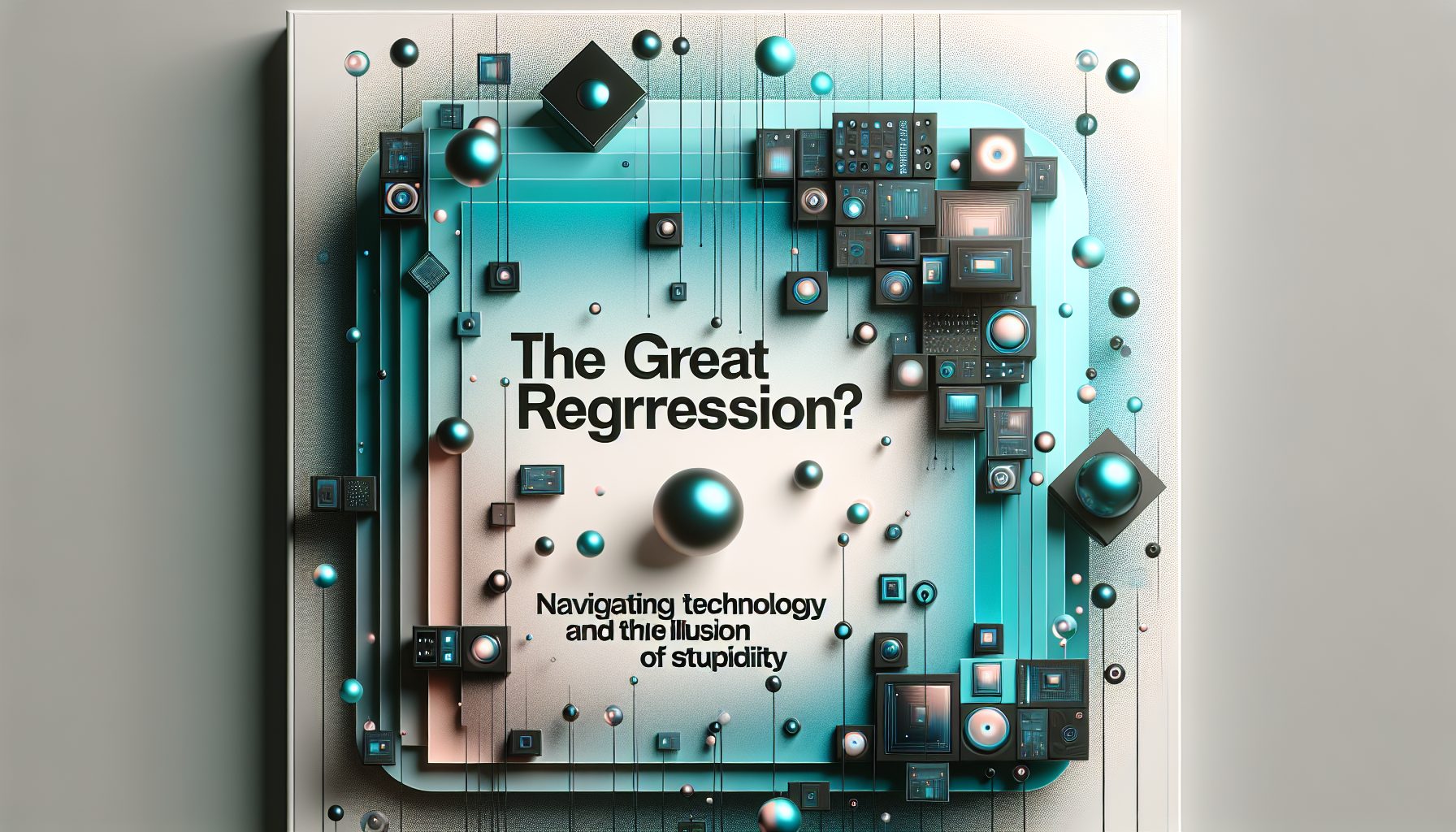Are we living in a golden age of stupidity? As someone deeply immersed in the tech landscape, I find this question alarming and fascinating. Let’s unpack this, not with a sense of doom, but with a critical eye on how technology shapes our perception of intelligence and ignorance.
The Amplification Effect: Are We Just Seeing More Stupidity?
One compelling argument suggests that we aren’t necessarily becoming more stupid; technology has amplified the visibility of existing ignorance. With their algorithms designed for engagement, social media platforms often prioritize sensational and controversial content. This creates an echo chamber where misinformation and poorly reasoned arguments can thrive, giving the illusion of widespread intellectual decline. Think of it like this: stupidity has always existed, but now it has a megaphone.
The Double-Edged Sword of Information Access
We live in an era of unprecedented access to information. A vast ocean of knowledge is available at our fingertips. Yet, this abundance can be overwhelming. The sheer volume of information and the ease of sharing unverified content make it increasingly difficult to discern fact from fiction. This “infodemic,” as some call it, can lead to a superficial understanding of complex issues, fostering a breeding ground for simplistic and often misguided opinions. Are we becoming less capable of critical thinking as we outsource our knowledge to search engines?
The Algorithmic Capture of Attention
Our digital devices and online content are meticulously designed to capture and hold our attention. This constant bombardment of notifications, clickbait headlines, and emotionally charged content can fragment our focus and diminish our capacity for deep thought. Shorter attention spans, driven by the digital world’s demands, may hinder our ability to engage in complex reasoning and nuanced discussions. Are we sacrificing intellectual depth for the fleeting dopamine rush of instant gratification?
The Rise of AI and the Blurring of Reality
The rapid advancement of artificial intelligence presents both incredible opportunities and potential pitfalls. AI-powered tools can generate convincing but false information, making it increasingly challenging to distinguish between authentic and fabricated content. This erosion of trust in information sources can lead to cognitive dissonance, where individuals struggle to reconcile conflicting narratives and form coherent understandings of the world. As AI becomes more sophisticated, will we lose our ability to discern truth from falsehood?
The question of whether we are living in a golden age of stupidity is complex and multifaceted. While technology has undoubtedly amplified the visibility of ignorance and presented new challenges to critical thinking, it has also provided us with unprecedented access to knowledge and tools for learning. The key lies in cultivating media literacy, promoting critical thinking skills, and fostering a culture of intellectual curiosity. What steps can we take, individually and collectively, to navigate the complexities of the digital age and ensure that technology serves to enlighten rather than to obfuscate?

